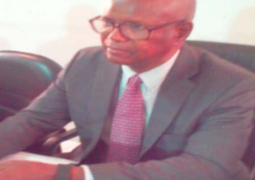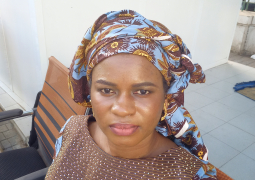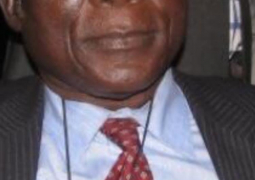The 2022 National Assembly (NA) elections concluded with an emphatic statement with results highlighting implications for the country’s nascent democracy. From all indications, and despite the abysmal low turnout, the NA polls had been followed with much enthusiasm from an active citizenry interested in having a robust legislature as a co-equal branch of the government. Amidst this enthusiasm, there were concerns. In many quarters, there were doubts and apprehensions regarding the quality of some of the candidates being put forward. In fact, some observers and analysts predicted “the worst” legislature in the offing. However, there were some who had hope in some candidates, especially some effective lawmakers vying for re-election and the caliber of some of the independent candidates that sprung up across the country.All that now is behind us, and the results have been quite startling.
Let’s look at the results and the implications.
One just must give the United Democratic Party (UDP) its due when it comes to resilience, perseverance, and an organic commitment to advancing its interest, and by extension, that of the country. This is by no means a propaganda. This is a fact. For a party that suffered a brushing defeat at the hands of the incumbent to bounce back just four months is no small feat. It tells a lot. There are those who would argue that, in fact, the party has performed badly given that its numbers in the House have dropped from 23 (ignore the expelled 8) to 15+1. This is technically right, it lost seven seats. However, it is important to look at the party’s performance from a broader perspective. In the aftermath of their shocking defeat four months ago, there were some analysts and observers who had predicted a gradual decline of the party’s dominance in the country’s political landscape. In fact, some declared that the 2022 NA polls would be the party’s 40-day charity. While the party was grieving, other optimists concluded an imminent landslide victory for the governing National People’s Party (NPP) in the 2022 NA polls. And rightly so, given the incumbent’s unexpected performance in December. But going by the results, it is clear that the NPP lost more than the UDP. Consider this. President Barrowsanctioned an aggressive political tour to canvass votes for his NPP candidates across the country during which he used his podium to demonize his political opponents and laughed off their woes at December polls. He was accompanied on this tour by a good chunk of his ministers, advisers, and members of his grand coalition partners.Using state resources, they frantically wooed voters to consider their candidates in meetings characterized by huge ambiance and fanfare. Barrow and his team were so determined to win big at all costs to consolidate their political power. Not even the Foni instability had distracted Barrow from achieving this goal. Despite this level of involvement, it is upsetting that the NPP managed to pull just 18 seats, a margin of just two ahead of the UDP. This is a new record for a governing party that has all the resources at its disposal. Thus, the UDP has a bragging right to celebrate what appears a true victory for them given all the circumstances that were against them.This comeback by the party will no doubt rejuvenate its base and embolden it for future elections, the nearest being the forthcoming local government elections in 2023. The comeback is a convincingmorale booster for the party, one that will keep alive its dream of a future UDP government. It demonstrates enormous strengthen of the party and its determination to continue fighting even during the most difficult of challenges.
The caveat, though, is that the UDP must not be complacent. If there is anything, the party executives must be more forceful now than ever before. The party’s executive members must be actively involved to keep energizing their ever-committed diaspora and grassroots bases, the core structures of the party. The party’s executive members must always be prepared to dirty their hands if achieving that grand dream of a future UDP government is anything to go by. With the founding generation of the party preparing to hang their boots, the challenge lies on the new younger generational leaders to consolidate all the gains of the party. That, though, will come at a cost, a cost the new leaders must be prepared to shoulder.
NPP’s poor performance and the implications
The astonishing poor performance of the NPP could only be compared to the 1962 general elections when Pierre Sarr Njie, as the country’s Chief Minister and first head of government – the incumbent, lost to Sir Dawda Kairaba Jawara’s People’s Progressive Party (PPP), an opposition. That election saw PS Njie’s United Party grabbing 13 seats against PPP’s 18. The defeat led to the slow but eventual natural death of the UP. Since then, no ruling party ever lost a majority in the parliament. It is the first time in 60 years that a governing party failed to garner majority of seats even as it was backed by a coalition of political parties and independents.
Losing Most Important Geographical Regions
The horse party’s performancecan best be gauged by its remarkable results in Banjul, Kanifing, and West Coast Region (WCR), regions that form more than 50 percent of the voting population. It is extraordinary that a party that secured 53 percent at the presidential elections got just one seat in these most important geographical and economic regions. These are also the regions with the most enlightened electorate. If I were President Barrow, this would warrant an immediate investigation with serious consequences for party officials. A sitting president could not have lost Banjul, the capital city, Kanifing, the economic superbase, and West Coast, the most populated region of the country.What went wrong would remain a question requiring an academic probe by political scientists.
But let’s look at circumstantial key factors that might led to this.
Firstly, there is apparent dissatisfaction with the Barrow administration, especially months after his victory. Citizens seem dissatisfied with many things, but the unbearable cost of livingtops these concerns. Added to this, the apparent indifference of the administration to addressing this critical concern have arguably influenced the outcome. For months, citizens have complained aboutrising cost of living, demanding an urgent solution. However, the lackluster response and inaction from the government had infuriated many electorate. The only two notable responses from this administration were a Sankareh-issued dispatch, and an embarrassing statement from the Trade Ministry announcing Sierra Leon’s intervention in providing cooking oil to the citizens. Barrow spoke once on it at the airport with a statement that fell far from citizens’ expectation. In that interview, Barrow failed to offer his government’s immediate solution, but instead talked about Gambians turning to agriculture, a long-term solution. All these tell a government clearly lacking a strategy to dealing with high cost of living. Thus, the NA election was seen as an opportunity to punish the administration for failing to address this important concern.
Another important factor that could have influenced the polls is the growing sense of instability and the fear that the country’s sovereignty is being compromised because of the war along Foni borders. Thousands of Gambians fled their communities seeking sanctuaries in other communities due to the conflict. In the midst of this, President Barrow not only failed to speak directly on the issue but went ahead to initiate a nationwide tour to canvass votes for his candidates. On his return, he failed to make a stop at these villages to show his solidarity with the internally displaced Gambians. By these actions, Barrow was effectively telling the Foninkas he cared less about the issue. The war might affect only Foni geographically, but what Gambians could not understand is how their President always comes short in handling critical issues like this. For a president not to directly engage a fleeing section of the population must have been so unforgiving for some electorate, keeping in mind the trajectory of Barrow’s silence on many national issues.
The other factor could be the growing “Macky Sall Effect” that seems to overwhelm Barrow in his ability to assert The Gambia’s national strategic interest. Through a social media content analysis, many Gambians disapproved of Senegal’s growing influence on The Gambia. The sentiments exposed the weakness of this administration in putting forward the country’s interest, thus angering many.
And finally, the expanding nest of public sector corruption, the vilification of senior opposition political leaders by no less a person than the head of state, police brutality, the institutional weaknesses, and the internal wrangling within the NPP have not helped the horse party. Thus, Saturday’s vote was a protest vote, an indictment on the administration.
The results have serious implications for Barrow’s political future. It means that for the next five years, Barrow will have just one representation from Banjul to Kiang. This will be an advantage for the opposition who will use their representation to consolidate their connections with the grassroots as they advocate on their behalf at the legislature. That constant visibility and advocacy in the national bantaba – legislature – will be important for the electorate, especially if their representatives are talking about the right issues and delivering the goods as required.
Having said that, all is not lost for Barrow’s future if he could muster the courage and get back to the drawing board and pursue the very agenda that Gambians set six years ago. There is no guaranty that citizens’ disgruntlement will change sooner unless Barrow apply the radical brakes and get the nation on a path of substantial democracy. If Barrow revitalizes the draft constitution and pursue the legal and legislative reforms, the future of his horse party will be brighter. Failure to listen to these legitimate concerns will tilt NPP to its gradual demise. Barrow should not listen to his advisers and praise-singers, they lack the wherewithal to help him govern.
Potential new marriage of convenience between UDP and Jammeh’s NAM
One of the shocking outcomes of this election is how former President Jammeh’s factional “No Alliance Movement” dramatically wrestled down Tombong-Jatta’s APRC. The former swept the entire Foni with results that sent the current co-chair of the Inter-Party Committee, Amul Nyassi, packing.For the NAM, this was a vindication that they controlFoni. On the other hand, it exposed the TombongJatta-led APRC.
But what emerges from this outcome is the potential marriage of convenience between NAM and the UDP. This is arguable. However, these two sides have a common denominator – the NPP. They are not forgiving Barrow for his gruesome assault that divided their parties. These parties also do not trust President Barrow. Because of these realities, these two sides will become accidental partners in the legislature. A review of the engagements of their militants indicates a softening of rhetoric between these two sides. In fact, a section of NAM attended UDP’s Momodou Sabally’s court hearing as a show of solidarity. These were two sides that never saw eye to eye because of Jammeh’s past with the UDP. However, the only bottleneck to this potential partnership is how the two sides will deal with Jammeh. Will UDP soften its stance on Jammeh and in the process lose a political base? Will NAM agree with the UDP on some issues concerning Jammeh? Time will tell how this marriage of convenience will be shaped.
The Quintet Sore Losers
The sore losers of the NA polls are the quintet lawmakers –Alhagie Jawara of Lower Baddibu, Saikou Marong of Latrikunda Sabiji, Fatoumatta Jawara of Tallinding, Baba Galleh Jallow of Sannehmentereng, and Saikouba Jarjue of Busumbala, all UDP-turned NPP candidates. The quintet was vying for re-elections, but their spectacular fall have tongues wagging. For the UDP, it was a revenge, a vindication that it is the party’s popularity that covers its members. For Gambians, it was a punishment given the influential role of the quintet in scuttling the draft constitution. The lessons learnt is that the electorate will not forgive elected officials if they compromise the integrity of their office. The opportunity for the new lawmakers is to protect the integrity of their office and advance the interest of the country, not an individual.
Seedia Sanna Jatta
The fall of Seedia Sanna Jatta is one of the biggest loses in the NA polls. For decades this veteran lawmaker had been a voice of reason in the legislature, offering his sea of experience in guiding the legislature. Alas, this patriot failed his re-election thanks in large part to President Barrow who brutally assaulted his career during a meeting in Wuli.
NRR
HamatBah’s National Reconciliation Party (NRP) has shown resilience even though some could argue it got the backing of the NPP that did not put up a candidate against it. But the fact remains that the blue party continues to survive in an increasingly competitive political environment with consistent representation in the parliament.
GMC
Mai Ahmed Fatty, no doubt an astute politician, needsa reassessment. The red party leader needs to inject a greater degree of seriousness into his political career. Mai must connect more with Gambians at the grassroots than on the social media. He needs consistency as that is sacrosanct for any politician. Mai has what it takes to be an amazing leader only if he reassesses his career and clearly determines what he wants. His is knowledgeable, charismatic, firm, and eloquent, all of which are good traits of a politician. But only him can harvest these traits and translate them into political success.
Other parties
The rest of the parties that came out of the race with dust should get back to the drawing board and reassess winning strategies for future elections.





